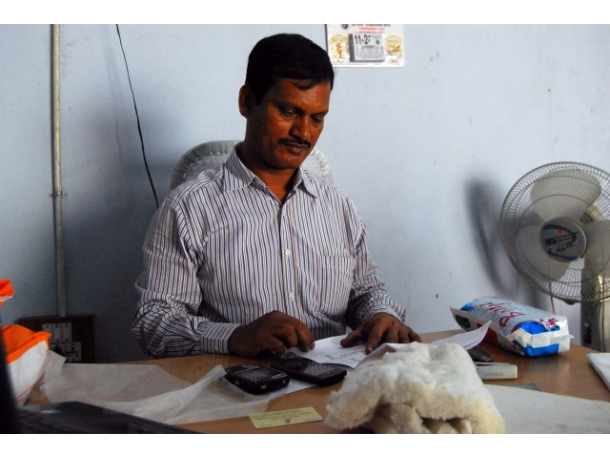Meet Arunachalam Muruganantham, India’s Tampon King
Bloody Good Fun

Meet Arunachalam Muruganantham, India’s “Tampon King.” He acquired this title by figuring out how to locally produce low-cost sanitary napkins that have the dual benefit of not only providing women with an affordable, hygienic management method for that time of the month, but also providing employment to many women. Click through to read more about his company and how he came to reign as the Tampon King!
According to Jezebel, Muruganantham came up with the idea of creating a low cost sanitary napkin when he found his wife collecting dirty rags from around their home: “He was shocked when she told him that she was using them for her period, because she had to choose between purchasing expensive sanitary napkins at the store and buying, say, dinner for their family.”
This revelation spurred him into researching what it would take to create a sanitary napkin that wouldn’t break the bank. He let his wife test out his prototypes, and when she wasn’t menstruating, he would go so far as to wear a football bladder of animal blood in order to try his creation out himself. When he started to collect used napkins from medical students, his village forced him from his home, fearing his obsession had gone too far. Even his wife and mother abandoned him temporarily.
It took him awhile to crack the code — being a laborer by trade, he knew how much it had to weigh, but finding the nexus of raw material that was both readily available and cheap proved difficult. Ultimately, he made his breakthrough when he called a US-based multinational company and asked what material would be best suited to his sanitary napkins. The answer? Wood pulp. Though it almost cost him his family and his home, his perseverance paid off, and 14 years later his sanitary napkins are being produced on machines across India. His pads are sold for 10 rupees, compared with those sold by Procter and Gamble for 30. According to The Independent, thanks to all of his success, he’s even thinking of expanding into the international market: “Rwanda, Nigeria, South Africa – I am talking with these countries,” said Muruganantham. “Nepal, Bangladesh, Afghanistan, Pakistan… They want to know about it.”
His production model does not require much technology and is decentralized, providing employment for many impoverished women across rural India. More than just providing them with sanitary napkins and jobs, though, some women feel like these low-cost pads are providing them with more freedom — many women are using the pads to encourage young girls to stay in school instead of waiting out their period at home, and, as one 25-year-old woman said: “We feel a lot more freedom. It gives us a lot more freedom to go out.”
Here’s to more women not having to make the choice between using a clean pad and feeding their families. Even “small” innovations like this greatly improve the lives of economically marginalized women, and it’s fantastic that his production model is being met with so much praise and success.
(via Jezebel.)
Have a tip we should know? tips@themarysue.com